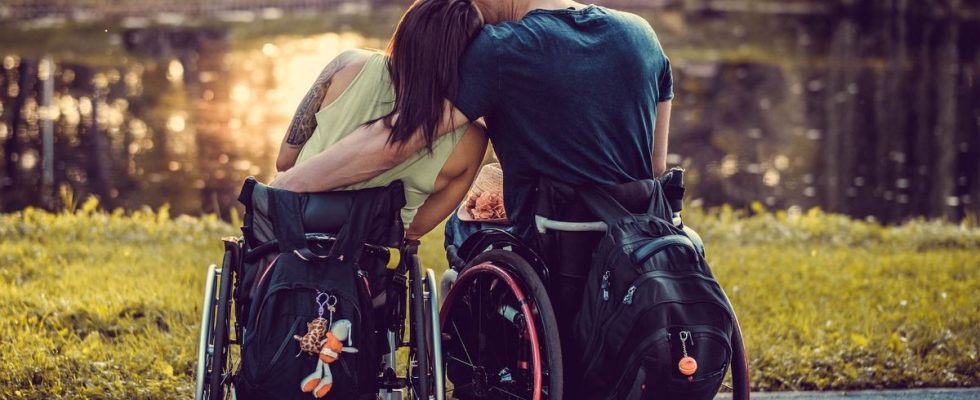Published on
Updated
Reading 1 min.
Living your sexuality fully when you have a disability can raise questions, and requires removing taboos. To be supported in this process, the official Mon Parcours Handicap website provides concrete answers.
Which method of contraception should you choose? How do I know my desires? What is consent? Will I pass on my disability to my child? So many questions that people with disabilities may ask themselves about their sexuality. Especially since the latter still remains taboo and little discussed.
Break taboos
To ensure the sexual health of people with disabilities, the Mon Parcours Handicap site presents all the themes that may raise questions through the “Intimate life, consent and parenthood” section. The content includes testimonials from people with disabilities and their caregivers, as well as numerous resources made available. Furthermore, the site directs people with disabilities to local contacts: the INTIMAGIR resource centers.
Several people wanted to express themselves on this platform, including Sandrine Ciron, founder of ParisienneJolly, who suffers from cerebral palsy, who declared: “When you are a woman with a disability, it’s as if our sex life doesn’t exist.”
Find personalized answers
The new section “Intimate life, consent and parenthood” offers the possibility of being listened to and guided. It is divided into three subcategories: “Find a personalized response near you”, “Living your intimate, emotional and sexual life” and “Becoming and being a parent with a disability”. Reliable, frequently updated and easily understandable content to be as close as possible to people with disabilities, as well as those around them.
The design of the section “Intimate life, consent and parenthood”, coordinated by the general secretariat of the CIH, notably brought together representatives of the regional health agencies, the INTIMAGIR Resource Centers, Family Planning, the Handigynéco system, the association accident victims of life (FNATH), the French-speaking association of autistic women (AFFA), the association Femmes pour le Dire, Femmes pour Agir (FDFA) and the Institut Mutualiste Montsouris.
